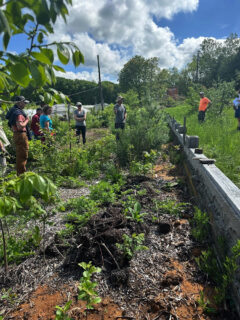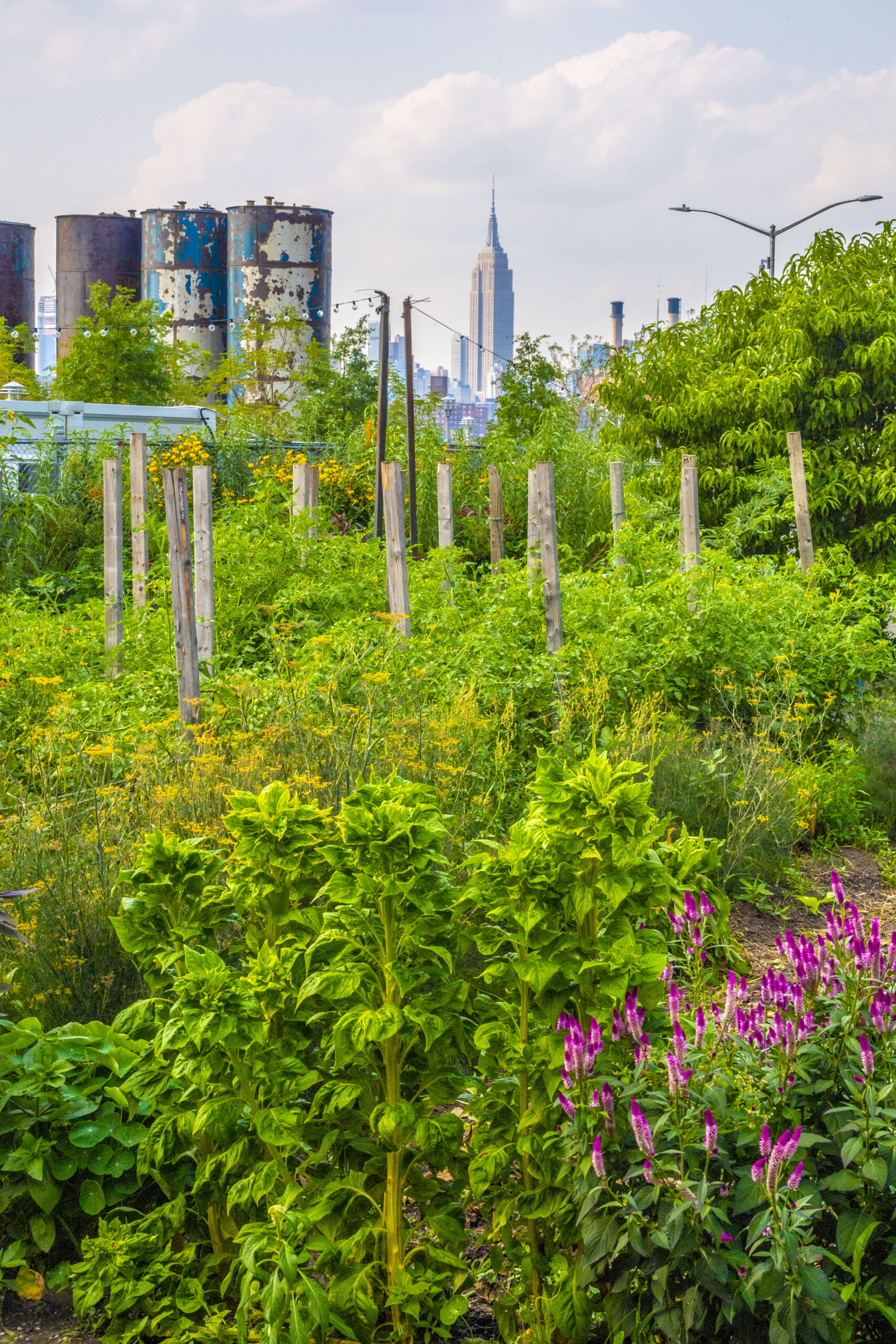Urban agriculture provides more than just fresh food to cities. Farms and garden spaces reduce the urban heat island effect, decrease stormwater runoff, provide wildlife habitat, and give city occupants a beautiful place to socialize and recreate. Recently, more frequent and intense flooding, drought, and record-breaking temperature events have negatively impacted urban farmers. To remain productive and profitable, urban farmers need support to address increasing weather extremes.
In response to the challenges facing urban agriculture, the USDA Northeast Climate Hub, Cornell University, and Harvest NY Cooperative Extension developed the Urban Climate Adaptation and Mitigation Program (Urban CAMP) in New York City (NYC). NYC, the largest city in the U.S., was selected to pilot Urban CAMP because of its established urban farming network. The city is home to more than 2,000 registered or permitted community gardens, offering a diverse group of needs, strengths, and production models. The program provides evidence-based information and recommendations to farmers and agricultural advisors to increase urban farm resilience. Lectures, group activities, and networking events build participant understanding of resilience and adaptation. Participants are expected to spend time doing outreach as well, transferring their knowledge to others in the group and to the larger urban farming community.
“The Urban CAMP program is excellent and much needed […] I intend to integrate climate adaptation and mitigation into my conversations with beginning farmers, and into my recommendations for improving Farm Service Agency offerings for urban agriculture!” – Urban CAMP Participant, 2025
Approximately 30 participants attended the first session in February 2025. The session highlighted variable weather pattern impacts and addressed the science behind why patterns are changing. One participant described her key takeaway as, “I gained a better understanding of the impact of climate change on urban agriculture and the measures that small scale growers can take to adapt and mitigate that impact.”

The Urban CAMP cohort toured a series of urban farms in the city on June 21st, 2025. Yolanda Gonzalez, Cornell Extension
Between 20-35 people, mixtures of original attendees and new, participated in the subsequent sessions. All sessions focused on connecting with peers and building participants’ capacity through group activities. The Urban CAMP workshop sessions focused on:
1.Climate Science and Impacts (February 26th)
2.Climate Adaptation on Urban Farms (March 5th)
3.Climate Mitigation on Urban Farms (March 12th)
4.Climate and Resiliency Planning (March 19th)
5.Finding Funding for Climate Resilience (March 26th)
“Understanding how to take concepts learned throughout (Urban CAMP) and apply them to creating a plan for the farm, [as well as] talking to other farms in the area and learning from their experience was very helpful!.” – Urban CAMP Participant, 2025
In addition to the five in-person workshop sessions, Urban CAMP also offers a series of in-person field days, online webinars, and opportunities to network with other urban farmers and agricultural advisors outside of the program. Participants electing to complete the full program have been given the opportunity to become program fellows. These fellows will attend field days, continue to connect as a cohort, and develop adaptation plans for farms that they work or volunteer on. Adaptation plans will address farm’s unique vulnerabilities and select adaptation techniques to implement them throughout the year. In December 2025 the program will wrap-up. During the closing event, fellows will present their adaptation plans and highlight any opportunities they’ve had to share their knowledge with members of their communities.
“Not only was the opportunity to network with other urban farmers and farms amazing, but the opportunity to get technical information was valuable.” – Urban CAMP Participant, 2025

